social bookmarking tools:
 |
|
| Available RSS Feeds |
|---|
 - Top Picks - Top Picks |
 - Today's Music - Today's Music |
 - Editor's Blog - Editor's Blog
|
 - Articles - Articles
|
Add Louisville Music News' RSS Feed to Your Yahoo!
|
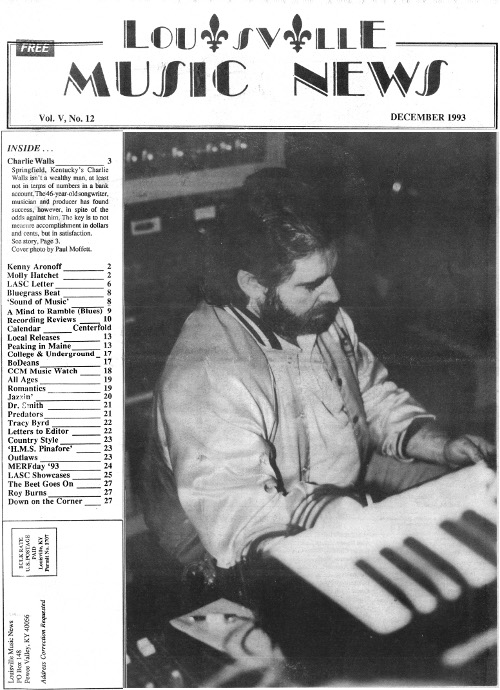
Charlie Walls
"Music Man"
By Kevin Gibson
Springfield, Kentucky's Charlie Walls isn't a wealthy man, at least not in terms of numbers in a bank account.
The 46-year-old songwriter, musician and producer has found success, however, in spite of the odds against him. The key is to not measure accomplishment in dollars and cents, but in satisfaction.
"I think the least amount of success can get you over the biggest problems," Walls said during a recent visit to Louisville. "The least little high is enough to get you over the biggest holes."
The co-founder of Walls & Reid Publishing and the "man" in Music Man Records — he plays as a one-person band under the name Music Man — has had his share of highs, from writing a song for John Mellencamp's movie, "Falling From Grace," to penning "10,000 Miles Away," a Gulf War tune which was played both nationally and internationally.
In his small studio in his modest Springfield home, Walls has also produced numerous cassette and vinyl releases for regional bands, and has completed his most recent and perhaps most difficult project, an 18-track compact disc featuring 12 of the Louisville area's best country acts.
Not a bad set of credentials for a former factory worker from Springfield. Still, it was a long road getting to where he is today, and Walls isn't about to use the cruise control, especially where the CD is concerned.
"That's why I put this project together, because I think we've got some decent talent in Louisville. I think the bands that are on the CD are going to hear their songs on the radio.
"Every one of these songs I've played for people in Nashville that could sign the song to an act right now."
Perhaps what makes Walls such a force despite his relatively small scope is the connections he has made with those who really count in the music industry. He is nothing if not relentless, and he remains undaunted by rejection.
When he was six, Walls' father strongly suggested taking up the piano. Naturally, the youngster resisted, but he learned at least one thing before he finally quit.
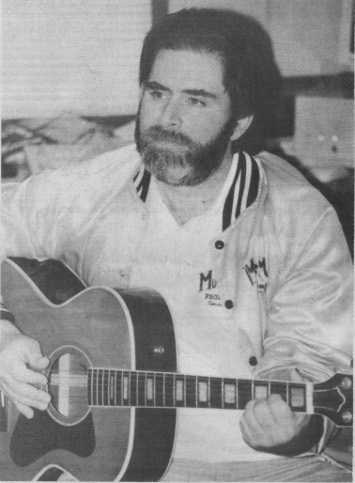
"Really none of that carried over, except that I realized I liked music," he said. So it began.
He later took up the guitar and by 1966 was playing gigs with a band called the Fugarries. The group practiced in his father's garage, cranking out music heavily influenced by the Beatles, Elvis Presley and the Beach Boys.
In 1967, Walls married Sandy Osborne, his wife to this day. While he admits that was perhaps his best career move, the business of raising a family hit the pause button on his career in music.
"Within two or three months I was out of it," he said.
"I traded all my guitars and amps and stuff for baby equipment."
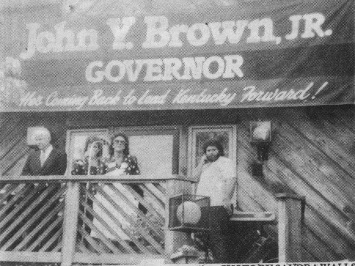
For practically the entire decade of the '70s, Walls was husband, dad, and factory worker. His music career appeared to be over.
However, when his sons, Troy and Brian, got older and needed less attention, Walls' passion for music began clawing its way to the top once more.
By 1981, Walls had picked up his guitar again and joined a rock band called Crossfire, which was comprised mostly of guys about 10 years his junior.
Charlie began looking back at the era of music he missed, and soon became infatuated with Southern rock. It was about then that he became interested in the unseen side of the music industry.
"I started to think there had to be more to music than just playing gigs. I wondered, 'Who writes these songs and how do they become records?' That was really stuck in my mind."
While owning and operating an auto body shop, he got into a country band called Silver Creek in 1983. He stayed with the band until 1985, and it was on December 31 of that year that he broke down and bought his first recording equipment.
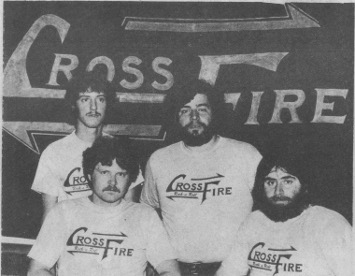
He soon invested in a M.I.D.I. (musical instrument digital interface) system with what was left of the body shop and converted a 9-by-12 bedroom in his house into a recording studio.
"My wife had to work hard for three years and just let me stay back there, out of trouble, and write some songs," he said.
Sandy didn't mind. "For years, he had to give up his music for us," she said, speaking of the family. "When the kids got old enough and I had a good job, I knew it was just time to give him a chance because I felt he had a talent he could develop."
She felt it was a chance her husband richly deserved: "When we first got married, we lived in an apartment over a feed store. He gave guitar lessons (ironically, stealing students from the very woman who had given Walls lessons as a child), and that actually paid our rent."
Concerning his piano teacher, Frances Schultz, Walls insists he didn't pirate her students on purpose.
"I was just teaching them the stuff they heard on the radio, the stuff they wanted to play," he said, a broad smile escaping through his bearded, round face.
So, Walls' recording studio in place, he ventured to Nashville in late '85 with five tapes in his hand and high hopes in his heart. He had contacted over 150 publishers about playing his music for them.
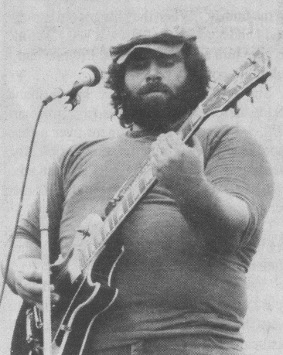
By the end of his journey, he'd distributed all five songs to various publishers. Walls knew he was on his way.
"I was on top of the world," he said. "Then when I got back that next Monday morning, all five of them were back. Those tapes beat me back to Springfield."
Shaken but not deterred, Walls returned to Nashville, this time for a seminar of the Nashville Songwriters Association International. There he met Sam Reid — his partner in Walls and Reid — and Earl Meyers, among others, and some permanent friendships and contacts were in place.
Through the Louisville chapter of the organization, Walls later met Gardner Barger, Jean Metcalfe and Paul Moffett, all of whom co-wrote tunes for Coyote's Country.
Within a couple of years, the lower-level contacts Walls had made were beginning to advance, and he was becoming more and more serious about the music business. His first break came in the form of the Mellencamp movie which was in production.
Through one of Walls' many contacts, he learned the movie's producers were seeking a country song for a fight sequence. He provided a tune called "The Proof's Here in My Hands," which can be heard as the bar brawl ensues on film.
In 1989, Walls was making demos and performing as The Music Man, with just his guitar and his M.I.D.I. setup. He had decided it was a better situation to be a one-man show than a band.
"That way, I didn't have to worry about them drinking or about the bass player running around with the drummer's wife," he quipped.
As The Music Man, he went on tour with the John Y. Brown for governor campaign. He went from one end of the state to the other and back again, gaining notoriety. Most of all, however, he was gaining a hunger to release a recorded product.
Then came Johnie Pierce and the Dawn Breakers. That band's song, "Fannin' the Flame," became the first 45 r.p.m. single produced at Walls' studio, and Music Man Records was born.
"It was a mammoth undertaking for me," he admits. He churned out a few hundred records and sent them to radio stations and publishers everywhere. "Three or four months later, here came a royalty check from BMI.
"We weren't going to make too many payments on a Cadillac with it, but it proved that it was viable that somebody might want to hear our record."
Walls' friends told him he was crazy for investing so much into such a great financial risk, but, as Walls said, "You need something. Money w ould have been a whole lot better, but when you're working it gives you encouragement. I felt real good."
His projects became bigger and better. Next came the John Allen album, A New Number One, featuring the title song as the single, which came out on vinyl. The song even made the Hot 100 in Indie Bullet, a Texas-based magazine which followed independent-label country music.
The song debuted just two spots below a release called "Nothing Short of Dying," by a country singer called Travis Tritt.
The cassette sold several thousand copies, and soon came an officially-licensed cassette featuring songs on University of Kentucky basketball, which drew substantial attention. Walls still gets requests for it.
Then in 1992 Music Man released a six-song effort by J.D. Black titled Movin' to the Country, followed by Too Close to CallBy the Reed Brothers Band. A cassette of hunting and fishing songs by Rodger Coombs, an education officer with the Kentucky Department of Fish & Wildlife, was another of Walls' more successful projects in the early '90s.
"I'm proud of that because it wasn't mainstream; it was hard to do," Walls said.
A project with singer Karen Kraft followed, as did Walls' tune for the troops in the Persian Gulf.
"10,000 Miles Away" was played all over Kentucky, in Texas and Tennessee, and even reached outside the country. The song never hit the Billboard charts, but it received much attention. Ironically, it was based on an incident which happened just blocks from the Music Man studio.
"I was going into town to get the mail; as you come over the hill into town, you can see down on Main Street. I saw traffic was stopped, and there were ambulances and fire trucks. ... When I got down there, I could see it was a parade being put together."
The parade was for the local National Guard unit which was shipping out that day for the Middle East.
"As they were going by, the words just came to me. I couldn't help thinking that they were black and white, but mostly green."
Now, Walls is already working on a project for The Other Smothers Brothers, a band which appears on the new CD, some demos for local singer Terry Tyler and a Christmas song for Kraft. Meanwhile, he has high hopes for each of his projects. If his past performances are any indication, he won't be disappointed.
The CD is titled Coyote's Country because of the involvement of Coyote Calhoun, the WAMZ disc jockey who has elevated to local celebrity status over the years through his involvement in the local country music scene.
Along with Kraft and The Other Smothers Brothers, some of the featured acts on the CD are Free Spirit Band, The Reed Brothers Band, J.D. Black, Uncle Pecos, Ron Peake and Open Country, BlackHawk, Hard Livin', and Karen Kraft & Kiks.
Three of the songs were recorded here in Louisville, two were done in Nashville, and the rest were mastered in Walls' Springfield studio. Walls says it was no cakewalk.
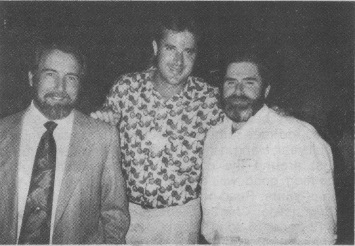
"It was one of those things where nobody thought it was going to work," he said. "Probably nine out of 10 people said it would never work."
It worked, and Walls describes the project as, "the culmination of a lot of years of trying to convince people that original songs get you a lot further than doing 'Achy Breaky Heart' 50 times.
"Plus, this project enables me to have something to play for [publishers]. Cassettes don't get it anymore."
Coyote's Country may just be the break Walls is looking for in terms of increasing his scope in Music City.
"If he truly does achieve success in Nashville, it won't be a recent thing," said Gardner Barger, who is one of Walls' closest friends as well as frequent co-writer. "He's been at this for 20 years. I think he meets people easily, and he's able to accept rejection and come back and look on the positive side."
Tyler, who recently released a local album, is working with Walls to boost his chances at getting known in Nashville.
"He's worked hard at this for years," Tyler said. "He just hasn't had a solid cut yet, but he's on the right track."
Until that perfect cut comes along, Walls will be pitching his songs in the Country Music Capital, never giving up the hope that the next one might just be The Big One.
"I'm in for the long haul," Walls said. "Music is what I want to do. You have to expect every roadblock that can come, and expect it double-barreled.
"If you wait for Nashville to come and find your song, you might be dead and gone."
